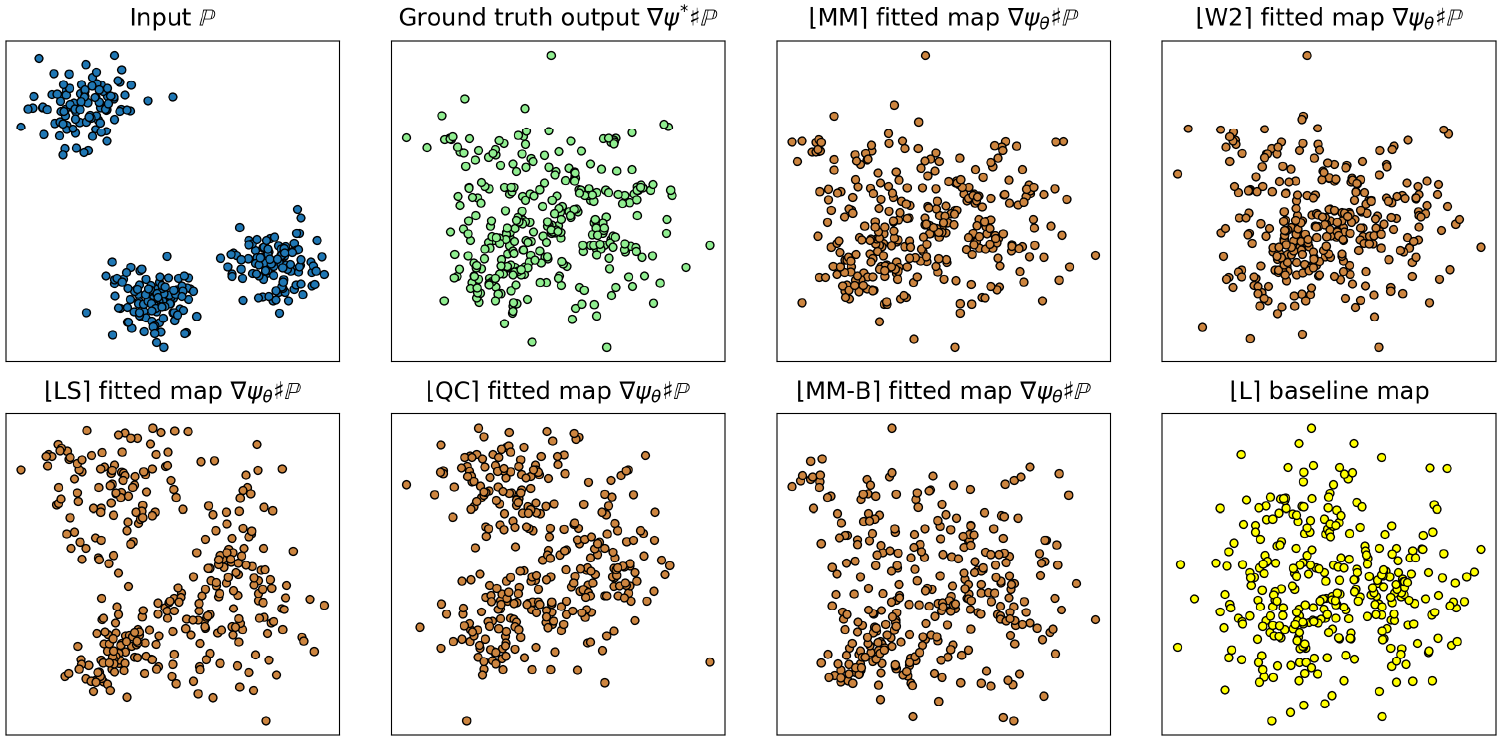Continuous Wasserstein-2 Barycenter Estimation without Minimax Optimization
Wasserstein barycenters provide a geometric notion of the weighted average of probability measures based on optimal transport. In this paper, we present a scalable algorithm to compute Wasserstein-2 barycenters given sample access to the input measures, which are not restricted to being discrete. While past approaches rely on entropic or quadratic regularization, we employ input convex neural networks and cycle-consistency regularization to avoid introducing bias. As a result, our approach does not resort to minimax optimization. We provide theoretical analysis on error bounds as well as empirical evidence of the effectiveness of the proposed approach in low-dimensional qualitative scenarios and high-dimensional quantitative experiments.
PDF Abstract ICLR 2021 PDF ICLR 2021 Abstract
